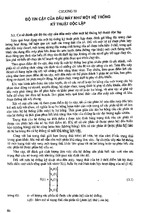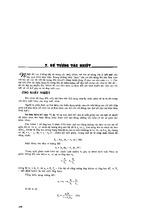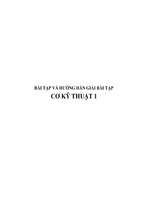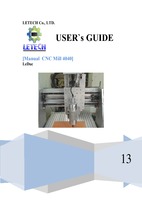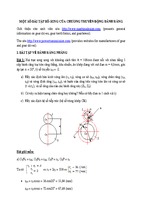Green Energy and Technology
Fausto Cavallaro Editor
Assessment and
Simulation Tools
for Sustainable
Energy Systems
Theory and Applications
Green Energy and Technology
Volume 129
For further volumes:
http://www.springer.com/series/8059
Fausto Cavallaro
Editor
Assessment and Simulation
Tools for Sustainable Energy
Systems
Theory and Applications
123
Editor
Fausto Cavallaro
Department of Economics, Management, Society and Institutions
University of Molise
Campobasso
Italy
ISSN 1865-3529
ISBN 978-1-4471-5142-5
DOI 10.1007/978-1-4471-5143-2
ISSN 1865-3537 (electronic)
ISBN 978-1-4471-5143-2 (eBook)
Springer London Heidelberg New York Dordrecht
Library of Congress Control Number: 2013943565
� Springer-Verlag London 2013
This work is subject to copyright. All rights are reserved by the Publisher, whether the whole or part of
the material is concerned, specifically the rights of translation, reprinting, reuse of illustrations,
recitation, broadcasting, reproduction on microfilms or in any other physical way, and transmission or
information storage and retrieval, electronic adaptation, computer software, or by similar or dissimilar
methodology now known or hereafter developed. Exempted from this legal reservation are brief
excerpts in connection with reviews or scholarly analysis or material supplied specifically for the
purpose of being entered and executed on a computer system, for exclusive use by the purchaser of the
work. Duplication of this publication or parts thereof is permitted only under the provisions of
the Copyright Law of the Publisher’s location, in its current version, and permission for use must
always be obtained from Springer. Permissions for use may be obtained through RightsLink at the
Copyright Clearance Center. Violations are liable to prosecution under the respective Copyright Law.
The use of general descriptive names, registered names, trademarks, service marks, etc. in this
publication does not imply, even in the absence of a specific statement, that such names are exempt
from the relevant protective laws and regulations and therefore free for general use.
While the advice and information in this book are believed to be true and accurate at the date of
publication, neither the authors nor the editors nor the publisher can accept any legal responsibility for
any errors or omissions that may be made. The publisher makes no warranty, express or implied, with
respect to the material contained herein.
Printed on acid-free paper
Springer is part of Springer Science+Business Media (www.springer.com)
To my Mother and Father
Preface
Energy and the supply of energy sources have played a central role in the
development of modern society. The technological revolution of the last century
would not have been achieved without the invention and rapid expansion of
systems for electricity distribution.
Up until the energy crises of the 1970s and early 1980s, satisfying energy
demand was basically a question of the availability of resources and the best
technology on hand. The last 20-30 years, however, have seen a change in the
way of interpreting the idea of availability and of energy supply.
The main factor that triggered this change is tied to the sharp rise in the price of
energy caused by the first oil crisis in the 1970s. In the West, that era heralded the
collapse of the myth of cheap, plentiful and easily available energy and raised in
its place concerns about the imminent exhaustion of natural resources. At the same
time, the worries linked to the environmental consequences deriving from an
increasingly greater use of hydrocarbons led to the search for energy technologies
that were environmentally compatible.
In recent years the concept of energy has been revised and a new model based
on the principle of sustainability has become more and more pervasive. The idea of
sustainable energy is founded on three main principles: production pertaining to
technologies for generating energy particularly those using renewable sources, use
which encompasses the different classes of energy efficiency and saving, and
environmental impact in terms of pollution and the use of natural resources, which
should be minimised. This broad-based model does not embrace merely energy
production but also its utilization, both of which are inserted within a bigger and
more complex picture, i.e. sustainable development. In order to tackle the problem
of sustainable energy effectively, it requires that energy-related economic, technological and ecological issues are no longer approached separately but are dealt
with as a single integrated concern.
In its recent report Energy Technology Perspectives (2012), the International
Energy Agency (IEA) underlines that to achieve sustainability it is essential to
make a determined effort to activate the development and propagation of technologies for the decarbonization of the energy system. Unfortunately, it is more
than evident that current schemes for technological innovations are proceeding at a
rather slow pace and presumably will not be able to guarantee any real change in
vii
viii
Preface
the energy system in the short term, a key factor to meet environmental sustainability targets.
The IEA gives unequivocal warning of the unsustainability over the medium–
long term of the current balance between economic growth, energy demand and
environmental impact. Based on a scenario which does not include any additional
measures or policies to tackle the energy issue, it forecasts that by 2050 emissions
of pollutants will have doubled compared to the figures for 2009. The Agency also
stresses that the majority of technologies that could play a leading role in the shift
towards low-carbon energy systems are still progressing very slowly.
The European Union, conscious of the risks linked to climate change, has taken
an active interest in the issues related to sustainable energy. Indeed, in late 2007,
the European Commission launched the Strategic Energy Technology (SET) Plan
to promote the development and deployment of low carbon technologies that are
capable of demonstrating good cost/benefit ratios. The SET Plan highlights the key
role that energy technologies have to play in order to meet the European targets for
2020 (and the longer term ones for 2050) to fight climate change.
In this context, the scientific procedure of assessment has a vital role in that it
can supply the right tools to evaluate the actual situation and make realistic
forecasts of the effects and outcomes of any actions undertaken. The results of an
accurate and effective assessment are undoubtedly a valid aid and guide not only
for decision makers as a whole, but also for entrepreneurs, managers, designers
and scientists. In brief, for anyone who wishes to measure or simulate the propagation and effect of an action (i.e. a plan, a project, a research study, etc.).
This book aims to offer readers a review of the main methods and approaches
that can be used for assessment and simulation in the field of sustainable energy
systems. The volume is divided into three parts. The first is dedicated to the
analysis of the theoretical foundations and applications of multicriteria decision
making and contains the following chapters. Chapter 1 is dedicated to sustainability assessment of solar technologies based on linguistic information. In this
chapter a modified multicriteria method (PROMETHEE) that uses fuzzy sets is
proposed to handle linguistic information for the assessment and appraisal of solar
energy technologies. Chapter 2 focuses on outranking approaches and the difficulties underlying choices in Multiple Criteria Decision Analysis (MCDA). In
particular, the authors propose the RUBIS method and the RUBIS D3 web server
to select photovoltaic plants for the insular grid on the French island of Corsica. In
Chap. 3 the Analytical Network Process (ANP) is used in order to evaluate and
select the main green energy alternatives for the country of Turkey. The conflicting
criteria used in the evaluation process are classified using the Benefits, Opportunities, Costs and Risks (BOCR) framework. Chapter 4 deals with the study and
evaluation of decision criteria that influence the location of solar photovoltaic and
thermoelectric plants, in order to obtain their weights or importance coefficients to
which Analytic Hierarchy Process (AHP) methodology is to be applied. In Chap. 5
a multi-attribute decision-making method combining cloud and utility theory is
described in order to evaluate different locations for a wind farm in Northern
Spain. Chapter 6 illustrates how geographical areas have diverse green energy
Preface
ix
resources and different levels of energy consumption. The aim of this chapter is to
group geographic areas in such a way that energy demand in a geographic cluster
matches the available green energy potential in the same cluster. In Chap. 7 a
methodology based on a cumulative belief degree approach is suggested for the
prioritization of energy sources. The approach enables the use of all types of
evaluations, without the loss of any information. In Chap. 8 the ranking of different
scenarios for wind farm configurations is computed and discussed. The TIMED
approach and the methodological framework for robustness analysis are described.
Finally, Chap. 9 focuses on the technological assessment of heat pump water
heaters using a tool based on a hierarchical decision model.
The second part concentrates on the theory and practice of fuzzy inference,
neural net and algorithm genetics and comprises the following chapters.
Chapter 10 sets out a model providing a general mechanism to measure the sustainability of energy sectors. The model, based on the Sustainability Assessment
by Fuzzy Evaluation (SAFE) approach, is applied to a large number of countries,
ranked according to their sustainable energy development. Chapter 11 explains
how Artificial Neural Networks (ANN) and Genetic Algorithms (GA) operate by
presenting a number of problems regarding different applications of solar energy
systems. Chapter 12 focuses on the theoretical background of ANN methodologies
applicable to the field of wind speed and discusses the implementation issues in a
region with complex terrain, namely Chania on the Greek island of Crete. In
Chap. 13 a new approach is proposed to deal with the ‘‘allocation procedure’’ in
Life Cycle Inventory (LCI). The approach used is based on GAs to resolve multioutput systems and it is applied to a case study related to a cogeneration process.
The second part concludes with Chap. 14 which explains the design and implementation of the maximum power point (MPP) tracking algorithm for a photovoltaic module using fuzzy logic and genetic algorithm.
The third and final part of the volume is dedicated to simulation methods such
as Monte Carlo analysis, Mathematical Programming (MP), Value Stream
Mapping (VSM), Particle Smarm Optimization (PSO) and Discrete-Event Simulation (DES). Chapter 15 introduces the main simulation techniques for sustainable
energy systems, i.e. Monte Carlo, Dynamic Systems (DS), DES and Agent Based
Simulation (ABS). In Chap. 16 the authors propose a combination of Mathematical
Programming and Monte Carlo simulation in order to deal with project portfolio
optimization. A case study using real data from the Clean Development Mechanism (CDM) projects’ database is developed to illustrate the method. Chapter 17
offers a future-oriented Energy Value Stream Mapping approach designed to
enhance energy efficiency in small- and medium-sized manufacturing companies.
In Chap. 18 a simulation-based generic framework is described for the assessment
of energy efficiency in Lean Manufacturing (LM) systems with the aim of contributing to theoretical and practical studies addressing both sustainable energy and
performance in manufacturing systems. Finally, Chap. 19 focuses on the socioeffective value of bio-diesel production. An approach based on PSO and SelfOrganizing Maps (SOMs) is implemented to obtain appropriate solutions of the
model.
x
Preface
I hope that readers will find this volume a useful tool for energy assessment
tasks. I also wish it to be a source of new ideas for further advancements in soft
computing and simulation issues for sustainable energy.
Italy, December 2012
Fausto Cavallaro
Acknowledgments
I would like to thank Ms. Susan Heather Parker for her valuable help. I am greatly
indebted to the reviewers whose considerable work has decisively contributed to
certify the quality of the chapters. Without their invaluable collaboration I could
not have achieved certain goals. In particular, I would like to express my deep
gratitude to: Fulvio Ardente (Institute for Environment and Sustainability, Sustainability Assessment Unit, EC-DG JRC), Serdar Baysan (Department of Indus_
trial Engineering, Istanbul Technical University, Istanbul,
Turkey) Mohamed
Benghanem (Department of Physics, Taibah University, Saudi Arabia) Selcuk
Cebi (Department of Industrial Engineering, Karadeniz Technical University,
Trabzon, Turkey), Didem Çinar (Department of Industrial Engineering, Istanbul
_
Technical University, Istanbul,
Turkey), Tugrul Daim (Department of Engineering
and Technology Management, Portland State University, Portland, USA), Alessio
Ishizaka (Portsmouth Business School, University of Portsmouth), Jorg Kalcsics
(Institute of Operations Research, Karlsruhe Institute of Technology, Karlsruhe,
Germany), Cengiz Kahraman (Department of Industrial Engineering, Istanbul
Technical University, Istanbul, Turkey), Gülgün Kayakutlu (Department of
_
Industrial Engineering, Istanbul Technical University, Istanbul,
Turkey) George
Mavrotas (Laboratory of Industrial and Energy Economics, National Technical
University of Athens, Greece), Eunika Mercier-Laurent (University of Lyon3,
Lyon, France), Başar Öztayşi (Department of Industrial Engineering, Istanbul
_
Technical University, Istanbul,
Turkey), Rocío Poveda-Bautista (Universidad
Politecnica de Valencia, Departamento de Proyectos de Ingeniería, Valencia,
Spain), Stelios Rozakis (Agricultural University of Athens, Department of Agricultural Economics and Rural Development, Athens, Greece), George Sgouros
(Iberdrola Renovables, Greece), Buke Tayfun (Mugla University, Department of
Physics, Mugla, Turkey), Theocharis Tsoutsos (Technical University of Crete,
Environmental Engineering Department, Chania, Greece), Alexandros Kontogeorgakopoulos (Cardiff School of Art and Design, University of Wales Institute
Cardiff, Cardiff, United Kingdom), Vicente Salas (Universidad Carlos III de
xi
xii
Acknowledgments
Madrid, Electronic Technology Department, Spain) Tommi Tervonen (Erasmus
University Rotterdam, Econometric Institute, Rotterdam, The Netherlands), Seda
Uğurlu (Istanbul Technical University, Department of Industrial Engineering,
_
Istanbul,
Turkey).
Contents
Part I
1
2
Multi-Criteria Foundations and Applications
Sustainability Assessment of Solar Technologies Based
on Linguistic Information . . . . . . . . . . . . . . . . . . . . . . . . . . . . . .
Fausto Cavallaro and Luigi Ciraolo
Photovoltaic Plants Selection on an Insular Grid Using
Multicriteria Outranking Tools: Application
in Corsica Island (France) . . . . . . . . . . . . . . . . . . . . . . . . . . . . .
Pascal Oberti, Marc Muselli and Pierrick Haurant
3
Assessment of Green Energy Alternatives Using Fuzzy ANP . . . .
Başar Öztayşi, Seda Uğurlu and Cengiz Kahraman
4
Decision Criteria for Optimal Location of Solar Plants:
Photovoltaic and Thermoelectric . . . . . . . . . . . . . . . . . . . . . . . . .
J. Miguel Sánchez-Lozano, M. Socorro García-Cascales
and M. Teresa Lamata
5
6
7
3
27
55
79
A Multi-Attribute Model for Wind Farm Location Combining
Cloud and Utility Theories . . . . . . . . . . . . . . . . . . . . . . . . . . . . .
José Ramón San Cristóbal
93
Territorial Design for Matching Green Energy Supply
and Energy Consumption: The Case of Turkey . . . . . . . . . . . . . .
Seda Uğurlu, Başar Öztayşi and Cengiz Kahraman
107
A Cumulative Belief Degree Approach for Prioritization
of Energy Sources: Case of Turkey . . . . . . . . . . . . . . . . . . . . . . .
Özgür Kabak, Didem Cinar and Gulcin Yucel Hoge
129
xiii
xiv
8
9
Contents
MCDA: Measuring Robustness as a Tool to Address Strategic
Wind Farms Issues . . . . . . . . . . . . . . . . . . . . . . . . . . . . . . . . . . .
Maria de L. Vazquez, Jean-Philippe Waaub and Adrian Ilinca
153
Assessment of Energy Efficiency Technologies:
Case of Heat Pump Water Heaters . . . . . . . . . . . . . . . . . . . . . . .
Tugrul U. Daim, Craig Kensel and Kenny Phan
183
Part II
10
11
12
13
14
Fuzzy Inference, Artificial Neural Net, Algorithm Genetics
A Fuzzy Paradigm for the Sustainability Evaluation
of Energy Systems . . . . . . . . . . . . . . . . . . . . . . . . . . . . . . . . . . .
Evangelos Grigoroudis, Vassilis S. Kouikoglou and Yannis A. Phillis
Artificial Neural Networks and Genetic Algorithms
for the Modeling, Simulation, and Performance
Prediction of Solar Energy Systems. . . . . . . . . . . . . . . . . . . . . . .
Soteris A. Kalogirou
Artificial Neural Network Based Methodologies
for the Estimation of Wind Speed . . . . . . . . . . . . . . . . . . . . . . . .
Despina Deligiorgi, Kostas Philippopoulos
and Georgios Kouroupetroglou
The Use of Genetic Algorithms to Solve the Allocation
Problems in the Life Cycle Inventory . . . . . . . . . . . . . . . . . . . . .
Maurizio Cellura, Sonia Longo, Giuseppe Marsala,
Marina Mistretta and Marcello Pucci
Design and Implementation of Maximum Power Point Tracking
Algorithm Using Fuzzy Logic and Genetic Algorithm . . . . . . . . .
Adnane Messai and Adel Mellit
Part III
205
225
247
267
285
Simulation Models and Approaches
15
Simulation and Renewable Energy Systems . . . . . . . . . . . . . . . . .
H. Kutay Tinç and C. Erhan Bozdağ
16
Combining Mathematical Programming and Monte Carlo
Simulation to Deal with Uncertainty in Energy
Project Portfolio Selection . . . . . . . . . . . . . . . . . . . . . . . . . . . . .
George Mavrotas and Olena Pechak
311
333
Contents
17
Value Stream Maps for Industrial Energy Efficiency . . . . . . . . . .
Cem Keskin, Umut Asan and Gulgun Kayakutlu
18
Assessment of Energy Efficiency in Lean Transformation:
A Simulation Based Improvement Methodology. . . . . . . . . . . . . .
Serdar Baysan, Emre Cevikcan and Şule Itır Satoglu
xv
357
381
Socio-Effective Value of Bio-Diesel Production. . . . . . . . . . . . . . .
Ayca Altay, Secil Ercan and Yasemin Ozliman
395
Index . . . . . . . . . . . . . . . . . . . . . . . . . . . . . . . . . . . . . . . . . . . . . . . .
423
19
Contributors
Ayça Altay was born in Izmir, Turkey in 1983. She obtained her undergraduate
degree in Industrial Engineering from Istanbul Technical University (ITU) in 2005,
her degree of master of science in Industrial Engineering from ITU in 2007 and her
doctoral degree in Industrial Engineering from ITU in 2012. In her doctoral dissertation, she studied Collective Intelligence-based Metaheuristics. She studies
Metaheuristics, mainly Particle Swarm Optimization and Genetic Algorithms.
Umut Asan is currently Assistant Professor in the Industrial Engineering
Department at ITU, Turkey. He holds a doctoral degree (Dr.-Ing.) in Industrial
Engineering from Technical University of Berlin. He published papers in refereed
international journals in the areas of decision making, fuzzy sets and futures
research. His present research interests include multicriteria decision making,
probabilistic modelling and uncertain reasoning.
Serdar Baysan M.Sc. is a researcher and Ph.D. Candidate in the Industrial
Engineering Department of ITU, Turkey. He received his master’s degree from the
same department in 2009 and had been a visiting researcher in Tokyo Institute of
Technology between 2009 and 2011. His research interests include lean transformation, lean product development, feasibility analysis and discrete event
simulation.
Erhan Bozdag received the B.S. degree from the Department of Industrial
Engineering, ITU, Turkey, in 1988. He received the M.S. and Ph.D. degrees from
Graduate School of Science, Engineering and Technology, ITU, in 1992 and 1998,
respectively. He has been working as an Assistant Professor in the Industrial
Engineering Department of ITU since 2000. His research interests include system
simulation, system dynamics, agent-based simulation and uncertain systems.
Maria Socorro García Cascales received the M.S. degree in Industrial Engineering and the Ph.D. degree in Industrial Engineering from the Technical University of Cartagena, Murcia, Spain in 2009. She received the Technical
University of Cartagena’s doctorate award in 2010. She is a Professor in the
Department of Electronic Computer Architecture and Project Engineering (DETCP) of the Technical University of Cartagena, and a member of the Models of
xvii
xviii
Contributors
Decision and Optimization (MODO) Research Group of the University of Granada, Spain. She has published 12 papers in scientific journals of impact; 10
chapters of books. She has more than 40 publications in national and international
congresses. She is currently involved in a research project on ‘‘Applicability of
Soft Computing in Advanced Technology Environments: Sustainability’’. Her
current scientific interests are soft computing, fuzzy sets and systems, decision
support systems, applications in engineering projects and renewable energy.
Fausto Cavallaro graduated in Economics in 1991. During 1995-1996 he was a
Fellow of the Italian National Research Council (CNR) for post graduated
advanced studies in environmental management. He received his M.Sc. in Environmental Management from EAEME (a University organization and network of
European Polytechnics and Universities) in 1997, and Ph.D. on ‘‘Technology and
Economics of Processes and of Products for Environmental Safeguard’’ from the
University of Catania (Italy) in 1998. Since 2002 he is Associate Professor at
University of Molise (Italy) of energy and environmental resources and environmental management systems. His research interest are in the areas of technology
assessment, environmental management systems, modelling decision support
system and fuzzy multicriteria analysis for renewable and conventional energy
systems. He is involved in several research projects and has published many
articles and publications.
Maurizio Cellura is full Professor of Building Physics and Building Energy
Systems at the University of Palermo, Italy. He is the author of more than 200
papers for conferences, national and international journals in the following fields:
LCA, Ecodesign, RETs, sustainable building, industrial ecology and decision
support system. Since 2012 he is Vice-President of the Italian LCA Association.
He is Chair of the Energy and Sustainable Technologies Working group of the
Italian Network of LCA. Since 2000 he is member of the IEA task 24 (Active
Solar Procurement), 38 (Solar cooling) and 40 (Towards Solar NZEB).
Emre Cevikcan is currently a lecturer in the Industrial Engineering Department of
ITU, Turkey. He received the M.Sc. degree and the Ph.D. degree in 2010 in Industrial
Engineering from ITU, Turkey. He studied the scheduling of production systems for
his Ph.D. dissertation. His research has so far focused on the design of production
systems (assembly lines, production cells, etc.), lean production and scheduling.
Didem Cinar is a Research Assistant at Industrial Engineering Department of
ITU, Turkey. She is currently pursuing the Ph.D. degree in Industrial Engineering
of ITU. Her research interests include integer programming, metaheuristics,
scheduling problems and operations research applications in energy.
Luigi Ciraolo is full Professor of ‘‘Technology and Quality’’ at Department of
Economics, Business, Environment and Quantitative Methods of the University of
Messina (Italy). Director of the Department of Studies on ‘‘Resources, Enterprise,
Environment and Quantitative Methodologies’’ at University of Messina from
1998 uninterruptedly until 31/10/2008. Component of a research unit involved in
Contributors
xix
the Italian research project PRIN 2008–‘‘Improving sustainability and competitiveness of the Italian agri-food chain with innovative environmental management’’-EMAF (EcoMAnagement for Food).
José Ramón San Cristóbal has been a Teacher at the University of Cantabria,
Spain, since 1998. He obtained his Ph.D. in 2004. His area of work is management
science/operations research in general, applied to several fields. His research has
focused on fields such as input/output and natural resources; investment criteria
and cogeneration plants; linear programming models and environment; multicriteria analysis and multi-objective programming models in renewable energies and
project management.
Tugrul U. Daim is an Associate Professor and Director of the Technology
Management Ph.D. Program at the Engineering and Technology Management
Department of Portland State University in Portland, Oregon, USA. He consults
the energy sector in technology planning.
Despina Deligiorgi B.Sc., M.Sc., and Ph.D. in Physics, University of Athens,
Greece is Assistant Professor in the Division of Environmental Physics-Meteorology, Department of Physics, University of Athens. Her current research topics
include: physics of atmospheric boundary layer, atmospheric air quality and transport of air pollutants, applied and dynamic climatology–climatic changes, wind
energy and environmental education. She has participated in a number of funded
research projects and has been reviewer/evaluator of various projects/programs.
Seçil Ercan was born in Istanbul, Turkey in 1987. She obtained her undergraduate degree in Industrial Engineering from ITU, in 2009 and her degree of master
of science in Industrial Engineering from ITU, in 2011. She studied classification
by using Support Vector Machines in her master’s thesis. She started her Ph.D. in
Industrial Engineering in the same year. She studies mathematical modelling,
artificial intelligence and artificial neural networks.
Evangelos Grigoroudis received his diploma in Production and Management
Engineering from the Technical University of Crete (Greece) in 1991, and M.Sc.
and Ph.D. degrees from the same university in 1996 and 1999, respectively. He is
Assistant Professor at the Department of Production Engineering and Management, Technical University of Crete, and member of the editorial boards of several
journals. His research interests are in operational research, management and
control of quality and environmental management systems.
Pierrick Haurant Ph.D. of University of Corsica since 2012. His thesis concerned
energetic planning in Corsica and specifically photovoltaic power integration in its
electrical network. Photovoltaic plants were selected by multicriteria analysis.
Radiations cartographies of Corsica were built from satellite images while territorial
compensations of radiations variations were studied to propose an optimal dispersion of future photovoltaic plants. Now he works on solar resource predictions using
Artificial Neural Networks and hybrid photovoltaic/thermal cells modelling.
xx
Contributors
Gülçin Yücel Höge is a Lecturer at Industrial Engineering Department of ITU,
Turkey. She got her Ph.D. degree in Industrial Engineering of ITU in 2010. She
had a Post-Doc research at the Chair of Human Factors Engineering and Product
Ergonomics, Berlin Technical University, Germany for the period 2002/
2011–2001/2012, and she was a Fulbright visiting researcher at the School of
Industrial Engineering at Purdue University, USA for the period 2008/2008-2008/
2009. Her research interests include ergonomics, job design, human factors and
system engineering in healthcare, usability analysis, risk assessment and fuzzy
decision making.
Adrian Ilinca has completed a Ph.D. in Mechanical Engineering at École
Polytechnique de Montreal and is Professor at Université du Québec à Rimouski,
Canada. He is conducting research in different areas—resource assessment,
technological development, adaptation to cold climates, MCDA—related to
renewable energies and more specifically wind energy. He is Director of the Wind
Energy Research Laboratory that regroups a multidisciplinary team of professors
from different universities.
Özgür Kabak is an Assistant Professor at the Industrial Engineering Department
of ITU, Turkey. He received M.S. and Ph.D. degrees in industrial engineering both
from ITU, in 2003 and 2008, respectively. He had a Post-Doc research at Belgian
Nuclear Research Centre (SCK•CEN) in 2009-2010 with the support of Belgian
Science Policy (BELSPO). He has publications in a variety of journals including
IEEE Transactions on Knowledge and Data Engineering, European Journal of
Operational Research, Transportation Research Part A: Policy and Practice, and
Journal of Global Optimization. His current research interests include fuzzy
decision making, mathematical programming and supply chain management.
Cengiz Kahraman obtained his B.Sc., M.Sc. and Ph.D. degrees from ITU
(Turkey) and on Industrial Engineering in 1988, 1990 and 1996, respectively. His
main research areas include engineering economics, quality management and
control, statistical decision making and fuzzy sets applications. He published over
150 international journal papers and 5 edited books from Springer. He guest-edited
many special issues of international journals. He is presently the Head of the
Industrial Engineering department of ITU.
Soteris Kalogirou Ph.D., D.Sc., is a Senior Lecturer at the Department of
Mechanical Engineering and Materials Sciences and Engineering of the Cyprus
University of Technology. He is also Professor Associate at Brunel University, UK
and Adjunct Professor at the Dublin Institute of Technology (DIT), Ireland. For
more than 25 years, he is actively involved in research in the area of solar energy.
Additionally, since 1995 he is involved in research dealing with the use of artificial
intelligence methods for the modelling and performance prediction of energy and
solar energy systems.
Gulgun Kayakutlu is currently Associate Professor in the ITU Industrial Engineering Department, Istanbul, Turkey. She gives lectures in operations research
Contributors
xxi
and artificial intelligence techniques; her studies are mainly in the Energy Field.
She has more than 20 papers published in SCI journals and more than 50 articles
presented in international conferences. Her major fields of study are decision
making, optimization and intelligence in the Energy Field.
Craig Kensel is an engineer at Intel Corporation. He is also a graduate student at
the Engineering and Technology Management Department of Portland State
University in Portland, Oregon, USA.
Cem Keskin is currently working as a consultant in the field of energy efficiency.
He has graduated in Physics from the Middle East Technical University and
received a master’s degree from the Energy Sciences Institute in ITU, Turkey.
Vassilis S. Kouikoglou received his diploma in Electrical Engineering from the
National Technical University of Athens (NTUA), Greece, 1985, and a Ph.D. from
the Technical University of Crete, 1989. He is Professor of the Technical University of Crete and has served as Chairman of the Department of Production
Engineering and Management. His research interests are in modelling and optimization of production networks and environmental systems.
Georgios Kouroupetroglou B.Sc., Ph.D. in Physics, is Associate Professor in the
Division of Communication and Signal Processing, Department of Informatics and
Telecommunications, University of Athens, Greece. His current research interests
focus on the area of speech signal processing, as a part of the major domain of
human–computer interaction. He has actively participated in a number of European
Union and National research projects. He has been reviewer/evaluator and a member
of working groups/technical panels of various EU projects.
María Teresa Lamata received the Ph.D. degree in Mathematics from the
University of Granada, Spain in 1986. She has worked in the area of fuzzy sets and
the related disciplines of computational intelligence for more than 25 years. Her
research interests include aggregation operators, decision making under uncertainty, fusion of information, and their applications in renewable energy and
human resources. She is currently full Professor at the Granada University,
Director of the Models of Decision and Optimization (MODO) Research Group
and serves on the Editorial Board of International Journal of Uncertainty Fuzziness
and Knowledge-Based Systems.
Sonia Longo an Engineer for Environment and Territory, graduated in 2005. She
completed the Ph.D. in Environmental Technical Physics in 2010. Since 2007 she
collaborates with the Energy Department of the University of Palermo (Italy) as
scientific consultant. She participated in research projects in the following fields:
life cycle assessment, net zero energy buildings, eco-design, sustainable building,
sustainable consumption and production strategies and renewable energy technologies. She is the author of 39 papers for conferences, national and international
journals.
xxii
Contributors
Juan Miguel Sánchez Lozano is an Industrial Engineer from the Technical
University of Cartagena, Spain since 2004 and has the m aster in Renewable
Energies title, Murcia 2010. Currently, he develops his work as a well-known
professional in the field of engineering projects and is also an Associate Professor
in the Area of Graphic Expression in Engineering in the Graphic Expression
Department at the Polytechnic University of Cartagena. He is a member of the
Official College of Industrial Engineers of the Region of Murcia. He has published
4 papers in scientific journals and has 9 publications in national and international
conferences. His research is currently focused on decision making in renewable
energy, geographic information systems (GIS) and cartography, multicriteria
decision methods in engineering projects and fuzzy logic applied to multicriteria
decision making.
Giuseppe Marsala graduated in 2003 in Electronic Engineering. In 2004 he
developed a research activity on microprocessor systems within the Institute of
Intelligent System for Automation (ISSIA), of the CNR, Italy. In 2008 he received
the Ph.D. degree in Electrical Engineering, developing his research activity within
the group of Converters, PEM Fuel Cell System and Control. Since 2009 he has
been a permanent researcher at ISSIA-CNR. His main research activities are:
power electronics and control, renewable energy, power line communication and
smart grid.
George Mavrotas received his diploma (1990) and Ph.D. (2000) degrees in the
School of Chemical Engineering from the NTUA, Greece. Currently, he is
Assistant Professor at NTUA, School of Chemical Engineering, Laboratory of
Industrial and Energy Economics. Among his research interests are: operations
research, multicriteria decision analysis, multi-objective mathematical programming, mathematical programming with applications mainly in energy, environment and portfolio selection. He has authored more than 50 articles in scientific
journals and book chapters and also has one contribution in the library of the wellknown Mathematical programming language GAMS.
Adel Mellit was born in Algiers, Algeria on July 21, 1974. He received the B.E.,
M.S.E.E. and Ph.D. degrees from USTHB University, Algiers, in 1998, 2002 and
2006, respectively. He is currently Associate Professor of Renewable Energy at
Jijel University. His current research interests include photovoltaic materials,
digital controller and artificial intelligence techniques for photovoltaic applications. He is Associate Member at the ICTP, Trieste, Italy and also, Associate
Editor of Energy journal (Elsevier, Ltd).
Adnane Messai received the B.Sc. and M.Sc. degrees in Electronics Engineering
from Batna University, Algeria, and the Ph.D. degree in Electronics Engineering
from Blida University, Algeria, in 1994, 2008 and 2012, respectively. Currently,
he is the Head of Research Laboratory in Instrumentation and Control in a
National Research Center in Algeria. His research interests include measurement
and control instrumentation and artificial intelligence applied to energetic systems.
- Xem thêm -




